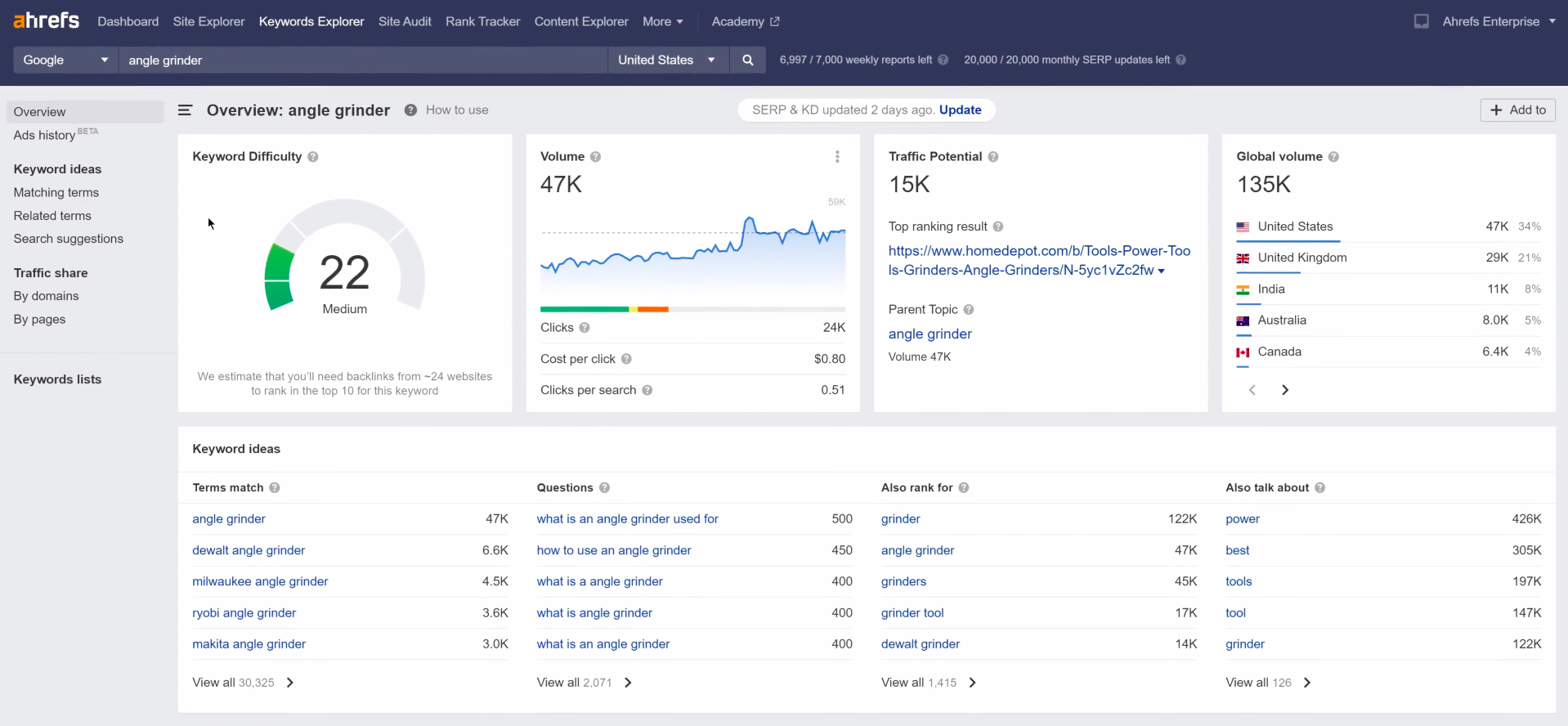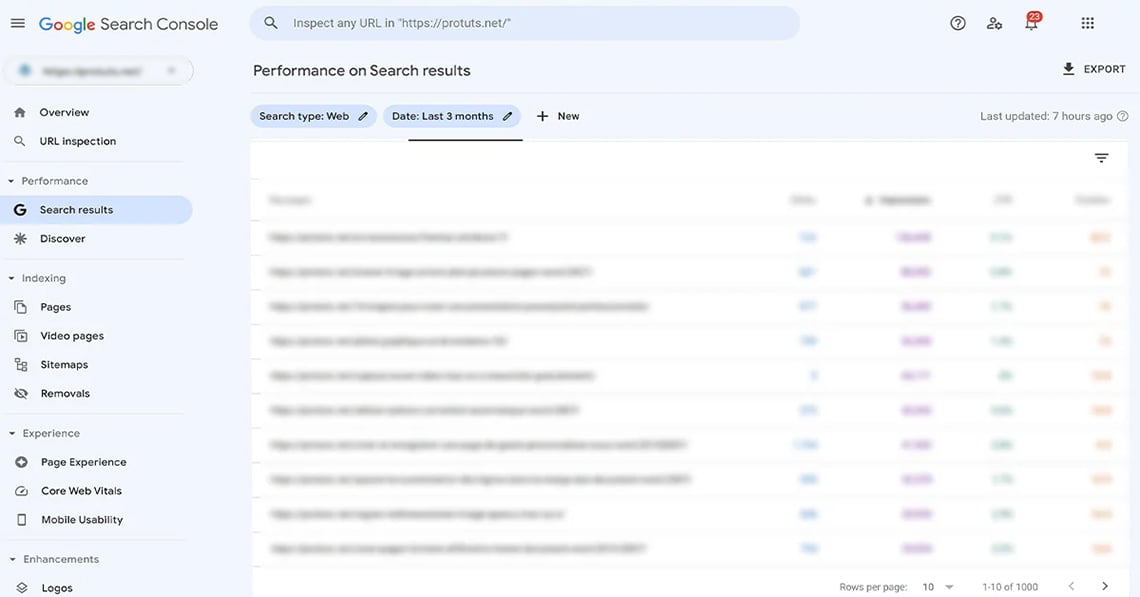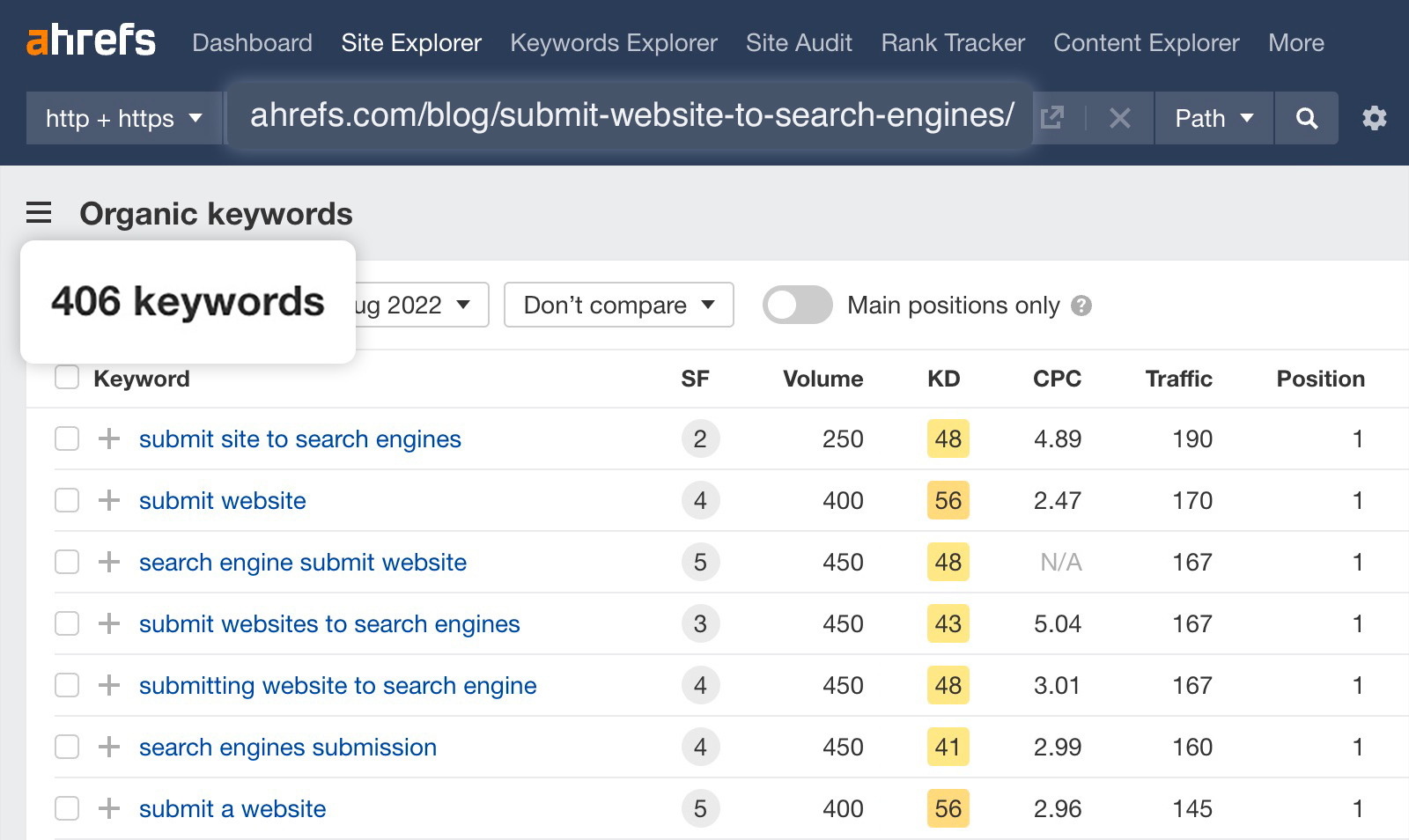The 2024 Top Guide to Effective SEO Keyword Research

For those versed in search engine optimization (SEO), the importance of keywords is clear. These are the terms and phrases that individuals enter into search engines while seeking information.
Selecting optimal keywords is a cornerstone for successful SEO strategies. With that in mind, we present to you an exhaustive guide on SEO keyword research! This endeavor, while challenging, can be immensely rewarding. Should you find the process overwhelming, consider enlisting the help of a professional SEO service. If you're ready to tackle it yourself, continue reading to discover the intricacies of conducting keyword research for SEO! Here's how to do keyword research for SEO in 10 steps:
1. Initiating Your SEO Keyword Research with Effective Tools
Embarking on your keyword research journey begins with leveraging SEO keyword research tools to simplify the process.
We suggest starting with keyword research tool like KeywordsFX, Keywords Everywhere, Ahref's Keywords Explorer, or Semrush's Keyword Overview,to compile an initial list of keywords that align with your SEO objectives.
These tools generally work by inputting a seed keyword. They then produce a range of associated phrases, terms, and commonly searched questions.
Although you'll need to sift through these suggestions to identify the most relevant keywords for your content (we'll address this aspect in more detail subsequently), these tools provide an invaluable foundation for your SEO keyword research efforts.
2. Leveraging Google Suggest and Google Trends for Keyword Discovery
Utilizing Google Suggest and Google Trends is an excellent method for uncovering keywords to bolster your SEO strategy.Google Suggest offers a glimpse into potential keywords through its autocomplete feature, which displays a list of suggestions as you type a query into Google. These suggestions are prime candidates for targeting as they represent real searches conducted by users.
For example, when you type "buy chair" into Google, you might see suggestions such as "buy chairs near me," which are typically long-tail keywords. Long-tail keywords contain more words or a longer phrases, like "curry recipe" compared to the short-tail "curry." These longer phrases are more specific, often less competitive, and can be easier to rank for.

Google Trends is another valuable resource that indicates the popularity of search queries. It can help you identify keywords that are gaining traction, which is useful for targeting timely and relevant terms that your audience is actively searching for.
3. Competitive Keyword Analysis
The next step in our SEO keyword research guide is to examine the keywords for which your competitors are ranking.
By analyzing your competitors' keyword strategies, you can identify opportunities to outrank them in search engine results, driving more traffic and potential leads to your site. Given that your competitors are likely targeting an audience similar to yours, the keywords they rank for could be highly relevant to your business.
To conduct this analysis, tools like Ahrefs are invaluable.
Using Ahrefs, you can input the URL of a competitor's webpage into their Site Explorer tool. By navigating to the Organic Keywords tab, you'll see a list of keywords that the page ranks for.
Additionally, Ahrefs allows you to analyze keywords for an entire domain, providing a broader view of your competitor's SEO landscape.
Once you've uncovered the keywords your competitors are ranking for, you're equipped with a strategic list of keywords to target in your own content, positioning you to compete more effectively in search engine results pages (SERPs).

4. Analyzing Keywords You Already Rank For
Don't overlook the significance of the keywords your website is already ranking for.
While it's essential to pursue new keywords, the ones you currently rank for can offer insights and opportunities for further optimization. By examining your existing keywords, you may discover additional related keywords that can be optimized to enhance your SEO strategy.
To review your current keyword rankings, use Google Search Console and navigate to the Search Results report. Under the Queries tab, you'll find the keywords that bring users to your site.
You may find terms that you haven't intentionally optimized for, yet Google ranks your site for them. If these keywords are relevant and you're not yet on the first page of search results, consider optimizing your content for these terms to improve your rankings and drive more traffic.

5. Compiling Your Keyword Ideas
After utilizing SEO tools, analyzing competitor rankings, and reviewing your own site's performance, it's time to consolidate all your keyword ideas.
Choose a format that suits you, such as a Word document or an Excel spreadsheet, to organize your keywords. Ensure the list is clear and structured, as you will refer back to it and may need to share it with your team.
6. Focusing on Long-Tail Keywords
With your comprehensive list at hand, it's time to refine it.
Not every keyword on your list will align with your SEO goals, so it's crucial to evaluate each one. Prioritize long-tail keywords, which are typically less competitive and easier to rank for than short-tail keywords.
Look for specific phrases that match user search intent, like "curry recipe" versus "curry," or "buy chairs near me" versus "buy chair." Including a variety of these long-tail keywords can significantly improve the effectiveness of your SEO strategy.
7. Analyzing Keyword Volume and Competition
When refining your keyword list, it's crucial to evaluate both the search volume and competition for each keyword.
Search Volume indicates how many times a keyword is entered into search engines. A higher search volume means more potential visibility for your content if you rank for that keyword.
Keyword Competition or keyword difficulty assesses the effort required to achieve high rankings for a particular keyword. A higher difficulty score means more effort is needed to compete with other sites targeting the same keyword.
Tools like Ahrefs can provide you with the search volume and keyword difficulty metrics.
In Ahrefs, "Volume" and "KD" columns give you insights into these aspects, respectively.
Ideally, you want to target keywords that have a substantial search volume but lower competition. However, it's common to find that high-volume keywords also come with high competition.
A balanced approach is to select keywords with a reasonable search volume and manageable competition, which could offer a better chance of ranking well and driving significant traffic to your site.

8. Considering Search Intent
After paring down your keyword list with considerations for long-tail keywords, search volume, and difficulty, the next step is to understand the search intent behind each keyword.
Search Intent represents the purpose behind a user's search query. It could be to find information, make a purchase, locate a business, or answer a question. Matching your content to the user's search intent is essential for ranking well.
If your content fails to align with the search intent of a keyword, it's unlikely to rank effectively. More importantly, you need to ensure that fulfilling the search intent is relevant to your business offerings.
For instance, if you operate an chairbusiness, targeting a keyword like "chair store near me" would be incongruent with your services.
Carefully analyze the search intent of each keyword to confirm that you can address it appropriately and that it aligns with your business objectives. By doing so, you ensure that your content not only ranks well but also attracts the right audience and meets their needs.
9. Determining Target and Related Keywords
In the SEO keyword research process, it's essential to distinguish between target and related keywords.
A target keyword is the primary keyword that you aim to focus on within your content. Related keywords, on the other hand, are terms that are associated with your target keyword. While they are not the main focus, they support your content by providing additional context and relevance.
For instance, if "Italian restaurant" is your target keyword, related keywords might include "local Italian restaurant," "Italian restaurant near me," and "Italian restaurant in Philadelphia, PA."
Categorizing your keywords into target and related groups is crucial to avoid creating duplicate content. This approach also enhances your content's chances of appearing in a variety of pertinent search results, thereby expanding your online presence.
Review your keyword list to identify which terms are your target keywords and which are related. Additionally, explore and add any missing target and related keywords to your list.
10. Finalizing Your Keyword List
With target and related keywords identified, the next step is to finalize your keyword list.
Carefully scrutinize your list one last time, confirming that each keyword aligns well with your business in terms of search intent, search volume, and keyword difficulty.
After refining your list, you're ready to move forward with content creation. Target your chosen keywords by producing valuable, informative, and SEO-optimized content. By doing so, you can anticipate improvements in your search rankings and an increase in website traffic.
Red more SEO tips here: 4 Tips to Choose the Right Keywords for SEO
FoxData provides SEO services. From keyword benchmarking to your campaign strategies to citation building to boost your local SEO rankings, we can handle it all. Now start your brilliant journey on FoxData!






